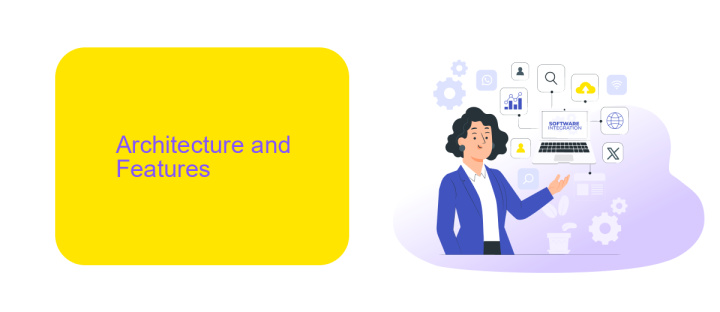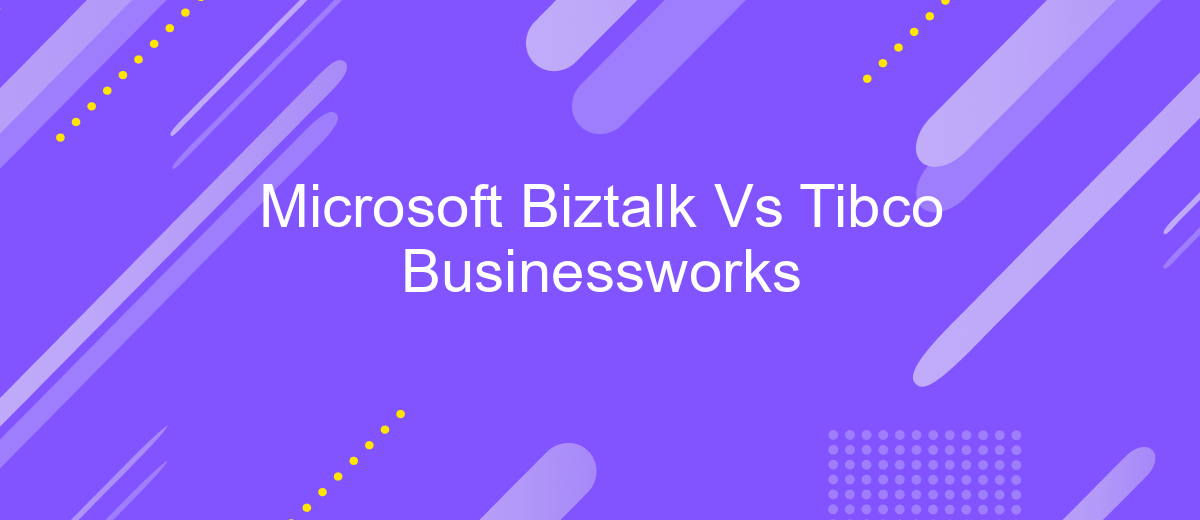Microsoft Biztalk Vs Tibco Businessworks
When it comes to enterprise integration and business process automation, Microsoft BizTalk and TIBCO BusinessWorks are two leading solutions that stand out. Both platforms offer robust tools for connecting disparate systems, streamlining workflows, and enhancing operational efficiency. This article aims to compare Microsoft BizTalk and TIBCO BusinessWorks, focusing on their features, strengths, and use cases to help you make an informed decision.
Introduction
In today's fast-paced business environment, companies are constantly seeking efficient ways to integrate their diverse systems and applications. Two prominent solutions in the integration landscape are Microsoft BizTalk and TIBCO BusinessWorks. Both platforms offer robust tools for connecting disparate systems, automating workflows, and ensuring seamless data exchange across various applications.
- Microsoft BizTalk: Known for its deep integration with Microsoft products and extensive support for various communication protocols.
- TIBCO BusinessWorks: Renowned for its high performance, scalability, and comprehensive set of integration tools.
Choosing the right integration platform depends on various factors, including existing infrastructure, specific business needs, and future scalability. For businesses looking to streamline their integrations without extensive coding, services like ApiX-Drive offer user-friendly solutions that can complement both Microsoft BizTalk and TIBCO BusinessWorks. By leveraging such tools, companies can achieve more efficient and flexible integration strategies, ultimately driving better business outcomes.
Architecture and Features

Microsoft BizTalk Server and Tibco BusinessWorks are two prominent integration platforms, each with its unique architecture and features. BizTalk Server operates primarily on a hub-and-spoke architecture, facilitating communication between various systems through a central hub. It supports a wide range of adapters for different protocols and applications, making it versatile for enterprise environments. Key features include Business Activity Monitoring (BAM), Business Rules Engine (BRE), and extensive support for various messaging standards such as XML and EDI.
On the other hand, Tibco BusinessWorks offers a more distributed architecture, focusing on high scalability and performance. It employs a microservices-based approach, allowing for flexible deployment and management of integration processes. Tibco BusinessWorks integrates seamlessly with cloud services, providing robust support for REST and SOAP web services. Additionally, it leverages a graphical user interface for designing integration workflows, making it accessible for users with varying technical expertise. Both platforms can benefit from services like ApiX-Drive, which simplifies the configuration of integrations by offering a user-friendly interface and pre-built connectors for numerous applications.
Integration Capabilities

When comparing Microsoft BizTalk and Tibco BusinessWorks, both platforms offer robust integration capabilities essential for modern enterprises. BizTalk, with its extensive support for various protocols and adapters, provides a comprehensive solution for integrating on-premises and cloud applications. Tibco BusinessWorks, on the other hand, excels in its ability to handle complex integrations with its high-performance engine and wide range of connectors.
- Protocol Support: BizTalk supports a wide range of protocols including HTTP, FTP, and SOAP, while Tibco BusinessWorks offers extensive support for REST, JMS, and more.
- Adapters and Connectors: BizTalk comes with numerous built-in adapters for different systems like SAP, Oracle, and SQL Server. Tibco BusinessWorks also provides a rich set of connectors for various databases, applications, and cloud services.
- Cloud Integration: Both platforms have strong cloud integration capabilities, but Tibco BusinessWorks offers more seamless integration with various cloud environments, including AWS and Azure.
For businesses looking to streamline their integration processes further, tools like ApiX-Drive can be invaluable. ApiX-Drive offers an easy-to-use interface for connecting various applications and automating workflows, complementing the capabilities of both BizTalk and Tibco BusinessWorks. This makes it easier for organizations to manage integrations efficiently without extensive coding.
Performance and Scalability

When evaluating the performance and scalability of Microsoft BizTalk and TIBCO BusinessWorks, several factors come into play. Both platforms are designed to handle complex integrations and large volumes of data, but they achieve this in different ways. Microsoft BizTalk leverages its robust integration with other Microsoft products, providing a seamless experience for organizations already within the Microsoft ecosystem.
TIBCO BusinessWorks, on the other hand, is renowned for its high performance and scalability, especially in environments that require real-time data processing. It offers a more flexible architecture, which can be a significant advantage for businesses needing to scale rapidly. The platform's ability to handle a high number of transactions per second makes it a strong contender for enterprises with demanding workloads.
- Microsoft BizTalk: Strong integration with Microsoft products, suitable for existing Microsoft environments.
- TIBCO BusinessWorks: High performance in real-time processing, flexible architecture for rapid scaling.
- ApiX-Drive: Facilitates seamless integration setup, enhancing scalability for both platforms.
Choosing between Microsoft BizTalk and TIBCO BusinessWorks ultimately depends on your specific needs and existing infrastructure. For businesses already using Microsoft products, BizTalk offers a cohesive solution. Conversely, TIBCO BusinessWorks is ideal for environments requiring high performance and flexibility. Additionally, services like ApiX-Drive can further streamline integration processes, making it easier to scale as your business grows.
Conclusion
In conclusion, both Microsoft BizTalk and Tibco BusinessWorks offer robust solutions for enterprise integration needs. BizTalk excels in its seamless integration with other Microsoft products, making it an ideal choice for organizations heavily invested in the Microsoft ecosystem. On the other hand, Tibco BusinessWorks provides a highly flexible and scalable platform that is well-suited for complex, large-scale integration projects across diverse environments.
Choosing between these two platforms ultimately depends on the specific requirements and existing infrastructure of your organization. For those looking to streamline their integration processes further, tools like ApiX-Drive can provide additional support by automating data transfers and simplifying API integrations. By leveraging such services, businesses can enhance their operational efficiency, regardless of the primary integration platform they choose.
FAQ
What are the main differences between Microsoft BizTalk and TIBCO BusinessWorks?
Which platform is easier to learn and use for beginners?
How do these platforms handle scalability and performance?
What are the typical use cases for Microsoft BizTalk and TIBCO BusinessWorks?
Can these platforms be integrated with modern automation and integration services?
Strive to take your business to the next level, achieve your goals faster and more efficiently? Apix-Drive is your reliable assistant for these tasks. An online service and application connector will help you automate key business processes and get rid of the routine. You and your employees will free up time for important core tasks. Try Apix-Drive features for free to see the effectiveness of the online connector for yourself.

